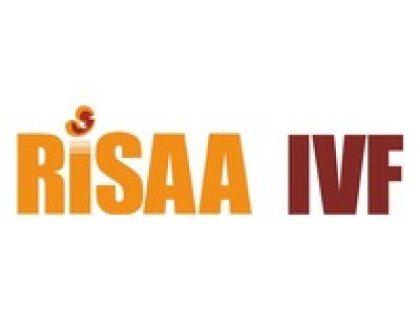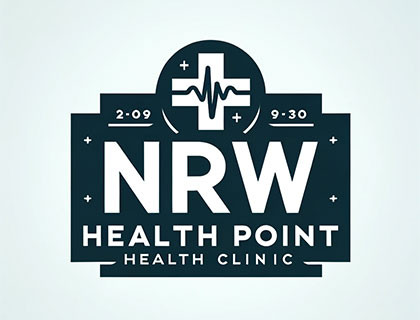
IVF stands for In Vitro Fertilization, which is a type of assisted reproductive technology (ART) used to help couples who are struggling to conceive naturally. In IVF treatment, mature eggs are retrieved from the woman's ovaries and then fertilized with sperm in a laboratory dish. The resulting embryos are then transferred into the woman's uterus with the hope that they will implant and result in a successful pregnancy.
The process of IVF treatment typically involves several steps, including ovarian stimulation, egg retrieval, sperm collection, fertilization, embryo culture, and embryo transfer. Ovarian stimulation is usually achieved through the use of hormones to encourage the ovaries to produce multiple eggs. Egg retrieval is then performed using a needle to collect the mature eggs from the ovaries, which are then combined with the sperm in a laboratory dish for fertilization.
After fertilization, the embryos are allowed to grow and develop in the laboratory for several days before being transferred into the woman's uterus. Typically, one or more embryos are transferred to increase the chances of a successful pregnancy. Any remaining embryos can be frozen for future use.
IVF treatment is a complex and expensive procedure, but it has helped many couples achieve their dream of having a baby. However, the success rates of IVF treatment can vary depending on a number of factors, including the age and health of the woman, the quality of the eggs and sperm, and the expertise of the medical team performing the procedure.
Istanbul, Turkey is a popular destination for couples seeking IVF treatment for several reasons:
Istanbul offers a combination of high-quality medical facilities, experienced doctors, affordable treatment, easy accessibility, and cultural attractions, making it an excellent choice for couples seeking IVF treatment.
The IVF treatment process typically involves several steps, including ovarian stimulation, egg retrieval, fertilization, embryo culture, and embryo transfer. Here is a more detailed breakdown of each step:
It's important to note that not all couples will have a successful outcome with IVF treatment, and several factors, such as the age and health of the woman, the quality of the eggs and sperm, and the expertise of the medical team, can affect the success rates. Additionally, some couples may require additional rounds of IVF treatment to achieve a successful pregnancy.
While IVF treatment is a safe and effective option for most couples, there are some conditions that may make a person unsuitable for treatment. These include:
It's important to note that each case is unique, and suitability for IVF treatment will depend on individual circumstances. It is best to consult with a fertility specialist to determine if IVF treatment is the right choice for you.
Choosing an IVF clinic in Istanbul, Turkey can be a daunting task, but here are some important factors to consider when making your decision:
By considering these factors, you can choose an IVF clinic in Istanbul, Turkey that best meets your needs and gives you the best possible chance of success.
The cost of IVF treatment in Turkey can vary depending on a variety of factors, including the clinic, the specific treatment plan, and any additional services or procedures required. However, IVF treatment in Turkey is generally more affordable than in many other countries, including Western countries. Here is a rough estimate of the cost of IVF treatment in Turkey:
It's important to note that the above costs are just estimates and may vary depending on the clinic and the specific treatment plan. Additionally, there may be additional costs associated with IVF treatment, such as medications, additional tests or procedures, and travel expenses. It's always a good idea to consult with a fertility specialist and get a detailed cost breakdown before undergoing IVF treatment.
IVF success rates in Turkey are generally quite high, with many clinics boasting success rates that are comparable to or even higher than those in other countries. Success rates can vary depending on a variety of factors, including the age of the woman, the cause of infertility, and the specific treatment plan.
According to the most recent data from the Turkish Ministry of Health, the success rate for IVF treatment in Turkey was around 44.4% for women under the age of 35, and 33.8% for women aged 35-39. These rates are based on live birth rates per embryo transfer.
However, it's important to note that success rates can vary widely between individual clinics, and some clinics may have higher or lower success rates than the national average. When choosing an IVF clinic in Turkey, it's important to consider factors such as the clinic's reputation, accreditation, and experience, as well as the expertise of the medical team and the technology and facilities available.
Additionally, it's important to understand that IVF success rates can never be guaranteed, and there is always a chance of unsuccessful treatment or pregnancy loss. It's always a good idea to discuss your individual chances of success with a fertility specialist and have realistic expectations going into IVF treatment.
If you're traveling to Istanbul, Turkey for IVF treatment, there are a few things to consider when it comes to travel and accommodation:
When planning your travel and accommodation for IVF treatment in Istanbul, it's important to consider the potential costs and factor these into your overall budget for treatment. Many clinics offer packages that include travel and accommodation, so it's worth checking with your chosen clinic to see if they can assist you with these arrangements.
In Turkey, IVF treatment is regulated by the Turkish Ministry of Health, and there are specific laws and regulations governing the use of assisted reproductive technologies. Here are some key points to keep in mind:
It's always a good idea to consult with a fertility specialist and familiarize yourself with the local laws and regulations before undergoing IVF treatment in Turkey.
In Turkey, several types of IVF treatments are allowed and regulated by the Ministry of Health. These include:
Choosing the right IVF clinic in Istanbul can be overwhelming, as there are many options available. Some factors to consider when choosing a clinic include success rates, accreditation, and the qualifications and experience of the medical staff. It's also important to consider the clinic's facilities, location, and any additional services they offer.
The length of IVF treatment in Istanbul can vary depending on a number of factors, such as the patient's individual needs and the specific clinic's procedures. Typically, the IVF process takes around 4-6 weeks from start to finish, although this can be shorter or longer depending on the individual case.
IVF success rates can vary depending on the clinic, the patient's age and health, and other factors. However, many IVF clinics in Istanbul have high success rates compared to other countries, due in part to the advanced medical technology and experienced medical staff.
The cost of IVF treatment in Istanbul can vary depending on the clinic and the specific procedures involved. However, IVF treatment in Istanbul is generally less expensive than in many other countries, such as the United States or Europe. Costs may include consultation fees, medication costs, and the cost of the treatment itself.
Istanbul is generally considered a safe destination for medical tourism, with many reputable and well-regarded IVF clinics. However, it's important to do your research and take any necessary precautions to ensure your safety, such as avoiding certain areas of the city at night.
IVF treatment in Turkey is legal and regulated by the Turkish Ministry of Health. However, there are certain legal and ethical considerations to keep in mind, such as the requirement for married couples to receive IVF treatment.
There are some restrictions on who can receive IVF treatment in Turkey, such as the requirement for married couples to receive treatment. Additionally, clinics may have their own requirements for patients, such as age restrictions or health requirements.
Many IVF clinics in Istanbul offer support services to patients, such as counseling or psychological support. Additionally, there are a number of support groups and online resources available to IVF patients in Istanbul and around the world.
Yes, foreigners can receive IVF treatment in Turkey. Many IVF clinics in Istanbul are experienced in working with international patients, and may offer services such as translation or assistance with travel arrangements.
The visa requirements for traveling to Turkey vary depending on the individual's country of origin. However, in general, most foreign visitors to Turkey will need to obtain a visa prior to arrival. The type of visa required will depend on the purpose of the visit, and may include a medical visa for those traveling for medical treatment.

Reproclinic is a modern fertility clinic in the center of Barcelona with advanced technology, the best professional care, personalized treatments and care on a case-by-case basis.
We provides all fertility treatments (except surrogacy and gender selection IVF cycles) with own or donor (anonymous) gametes for heterosexual or female couples or single women. The limit age is around 50.
In Reproclinic we create individualized fertility treatment programs that tailor to our patient’s needs. The patient experience is a fundamental concept at Reproclinic. Every detail of this experience contributes to success. We make all this process manageable, safe, easy and relax.
We offer our patient a holistic approach: acupuncture, nutrition, osteopathy, fertility coach, etc. We assist our patients with travel logistics making sure their fertility journey relaxed.



